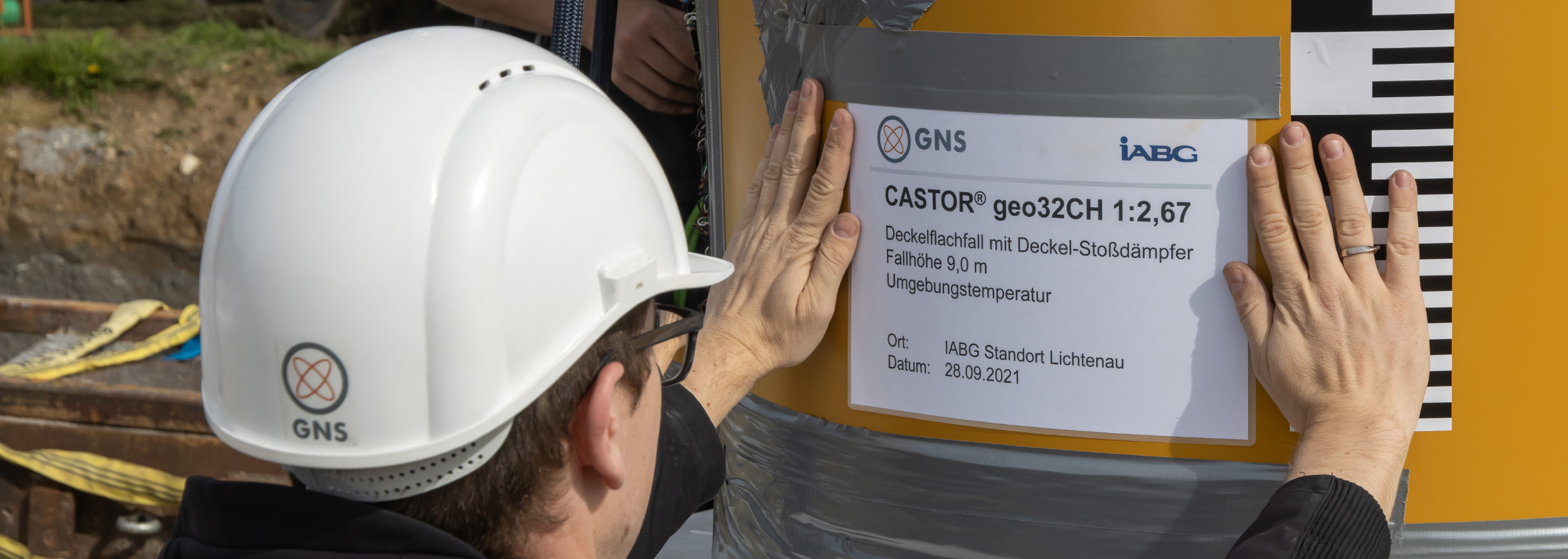
The transport of radioactive materials is subject to strict national and international regulations to ensure the protection of people and the environment at all times. Technical safety in the transport of radioactive materials is primarily ensured by the characteristics of the package, which can be transported largely independently of the mode of transport with minimal operational and administrative measures.
The safety requirements for such a "package" are defined in the Transport Recommendations of the International Atomic Energy Agency (IAEA) and implemented worldwide in a legally binding manner in the dangerous goods transport regulations. Compliance with the regulations must be demonstrated for each package design. Transport casks in which radioactive materials with increased hazard potential are transported require approval.
So-called type B packages are used for the transport of irradiated nuclear fuel and high-level radioactive waste. These packages must withstand the effects of even the most severe accidents while maintaining their safety functions:
Safe confinement of the radioactive contents (tightness)
Shielding of the radioactive radiation
Dissipation of the heat emitted by the contents
Exclusion of the occurrence of a nuclear chain reaction (criticality safety)
Safety verification and approval of the casks
In Germany, such Type B packages are subject to approval by the Federal Office for the Safety of Nuclear Waste Management (BASE). The BASE took over this task on July 30, 2016, from the Federal Office for Radiation Protection (BfS), which had been responsible until then.
The fulfillment of the legally required type B properties of the casks must be proven by the applicant to obtain the official approval. Various methods can be used for this purpose, such as original tests, model tests and theoretical - i.e. computational - proofs.
Mechanical and thermal properties, leak tightness and quality assurance are independently assessed by the Federal Institute for Materials Research and Testing (BAM) and confirmed by a test certificate. On the basis of these two examinations, the BfE issues the approval.
All GNS casks are designed to withstand extreme accident conditions. Numerous tests over the past four decades have proven the high safety of our casks. The largest number of tests in the world have been conducted with GNS casks. The tests include: